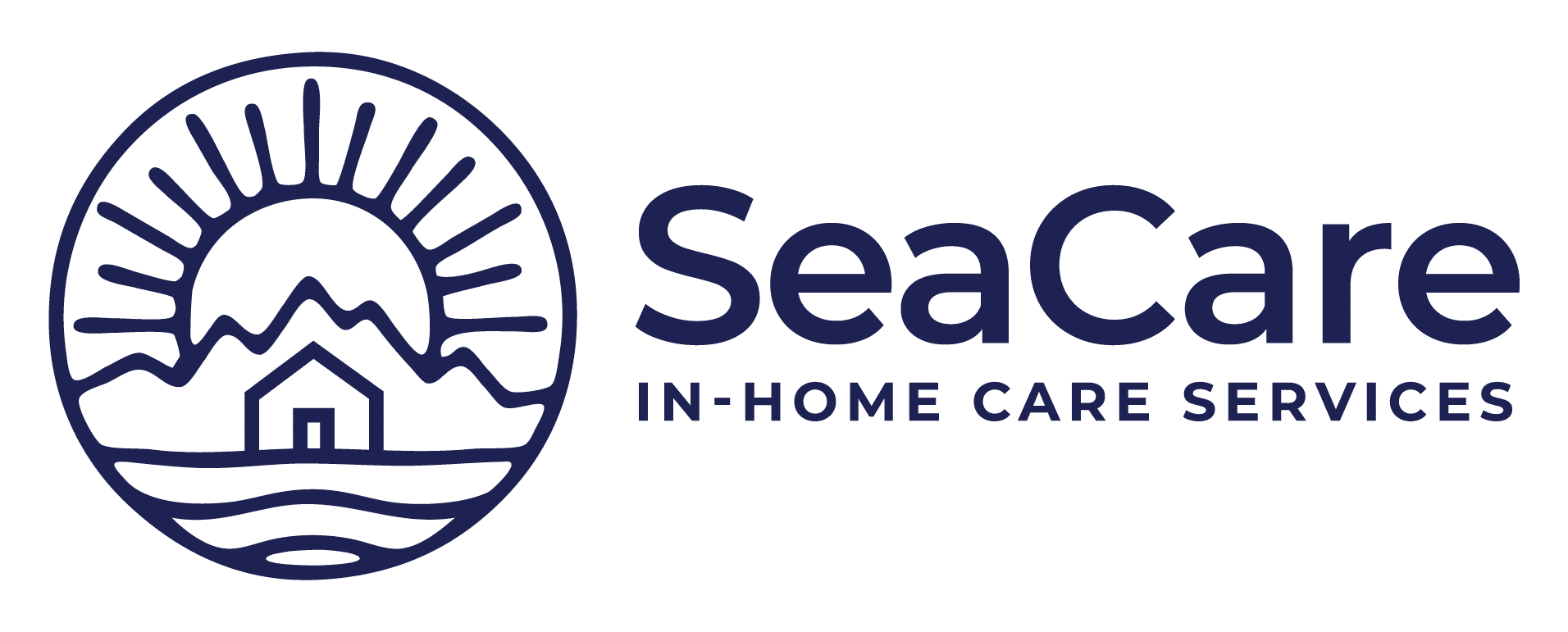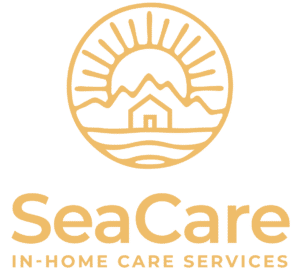Caregiving for Alzheimer’s is a family affair
by Katie Wright | Nov 16, 2021 | family support, alzheimer's disease, alzheimer's caregiving | 0 Comments

For family caregivers of those already diagnosed with Alzheimer’s, awareness is front and center every day, 24/7. The disease challenges families in ways they probably didn’t imagine before their loved one showed signs of cognitive decline.
Early detection means more benefit from treatment — both physical and emotional, for both patient and caregiver. And it means families have a chance to build their support network and have a better understanding of what’s ahead.
As Alzheimer’s runs its course in a person, the impact on their family can’t be understated. The disease often completely transforms family roles and routines, posing the most challenging of burdens on the caregiver.
A brief summary of facts from the Alzheimer’s Association and the Centers for Disease Control (CDC) helps to explain why the disease so profoundly affects caregiving families.
- Most people with Alzheimer’s disease and related dementia are cared for in their homes by family caregivers. In 2019 that was 18.6 billion hours of unpaid care.
- People with Alzheimer’s often require care for much longer periods of time than people with other conditions. Care becomes more challenging as the disease progresses, which can occur over a period of many years.
- Dementia caregivers are more at risk for depression, anxiety, and a lesser quality of life than other caregivers.
I want to focus this blog on the importance of early detection and family involvement. There’s currently no cure for these progressive diseases. This means that caregivers of those who have been diagnosed with Alzheimer’s or dementia may face years of increasing challenges. Early detection means more time to learn, prepare, and adjust for the inevitable changes in family dynamics that lie ahead.
There is no silver lining with a diagnosis of dementia. But in the last two decades, the available information about these diseases and resources for coping with them has dramatically increased. Dementia caregivers have a wealth of accessible research and practical knowledge at their fingertips.
How families can be proactive about early signs of dementia
Most people middle-aged and older have passing thoughts about memory loss. There’s a phrase we’ve all heard and many of us have used — “having a senior moment.” It’s a worn-out quip that’s ready for retirement. Occasionally misplacing something, forgetting an appointment, or taking extra time to let a new concept sink in does not equal dementia.
These are lapses that can happen to anyone, regardless of age.
The Alzheimer’s Association offers a checklist that outlines 10 warning signs of the disease and compares them to examples of typical age-related changes. The differences are often subtle. Take a few minutes to read over the list and descriptions linked above. Here are a few of them to illustrate.
Memory loss. If it disrupts your loved one’s daily life — they regularly cannot remember important dates or information they’ve just been given, or they repeat the same questions over and over — this is an early sign of dementia that should be noted.
- What’s typical? Forgetting something momentarily but remembering it later.
Challenges in completing familiar tasks. If your loved one can’t remember how to get to a familiar place or how to assemble a favorite recipe, this is another early sign.
- What’s typical? Needing a reminder about how to perform a computer function.
Poor judgment not observed before. Your loved one may struggle with decision-making or exhibit poor judgment with their choices, such as how they spend money.
- What’s typical? Making a questionable choice on occasion or neglecting to get an overdue oil change.
Noticing how things have changed for your loved one is an important first step in getting early treatment for them. Research shows that the earliest signs appear from three to five years before a diagnosis can be made. Many changes associated with dementia happen gradually and can be easy to miss. If an infrequent visitor pays a visit, like an out-of-town friend or family member, they may more readily notice differences in your loved one’s behavior or personality.
Use this guide published by the Alzheimer’s Association as you think about what you’ve observed in your loved one. It encourages you to consider your loved one’s baseline behavior as you notice changes.
Observing such changes is one thing. Approaching the subject with your loved one is another, and can be difficult. They might downplay what you notice and resist the next step, which is to have them undergo a medical assessment. Even if they acknowledge the changes, they may fear the results of an assessment.
It’s also possible that symptoms you see are part of a different condition, such as depression, infection, or substance abuse. This makes a medical assessment especially critical in making a plan for care.
How can you encourage your loved one to get medical attention?
- Let them know that checking into their condition will offer you both some assurances and provide helpful information.
- Remind them that early detection offers the most promise for easing symptoms and planning for the future.
- When there’s another reason for a provider visit such as a medication review, blood pressure check, or lab work, you can suggest a check-up.
- If you’re their spouse, you might suggest that you both get a thorough exam.
How family dynamics shift after a dementia diagnosis
Many years ago my dear friends Judi and Larry and their two teenagers welcomed his mother into their home to live with them. Sarah was about 70 at the time, physically strong and healthy. They began noticing behavioral changes in a few years’ time — memory lapses, confusion about time and place, and declarations that she was planning to go back home to Kansas. In time she began walking out of the house — on her way to Kansas — and accusing her grandson of stealing her underwear.
Sarah’s disease progressed over time. She had become nearly comatose when she died from related complications more than 10 years after her diagnosis. Larry, whose job offered the most flexibility, had been her primary caregiver.
I mention them for two reasons. First, because her care truly became a family affair. Although the kids occasionally balked at staying home with Grandma so my friends could get out for an evening, their team spirit came through.
And second, the family was able to maintain a healthy sense of humor about their situation. As close as I was to them, I never heard them speak of it as a burden. I attribute this to their wise and deliberate reckoning of the disease — both had been in the mental health profession and knew the value of observation — and their ability to engage their kids in Sarah’s care.
When there is a diagnosis of Alzheimer’s, there’s bound to be a flood of emotions for everyone. Anger and fear will emerge, along with possible denial that this could be happening. Recognizing this can enable you to seek help and talk to people who have experienced it. Remember that your loved one will also be very emotional, and so will others in your family.
Preparing for a shift in family dynamics is essential. Before you allow uncertainty and anxiety to take over, learn as much as you can about Alzheimer’s and dementia. There’s a wealth of easily accessible information at your disposal. Start with Understanding Alzheimer’s and Dementia from the Alzheimer’s Association.
With your loved one’s permission, tell friends and family about the diagnosis and begin to build your network of support. In time you’ll want to reach out to these people to assist by giving you breaks from your duties.
Recognize that as primary caregiver, your routines and responsibilities apart from your loved one will need to be revised. You may experience this as a loss, especially if changes involve leaving a job, foregoing leisure activities, and asking the rest of your family to take on additional responsibility in your absence.
Clear communication and family involvement are more crucial than ever as you meet new challenges.
Generally, most people in the early or mild stage of the disease can still function independently — this underscores the importance of early detection. Over time their abilities will begin to fade and you’ll learn what adaptations must be made.
It’s challenging and emotional but not impossible. There’s support at your fingertips.
Dementia caregiver resources
Here are some excellent resources to help you talk about Alzheimer’s together with your loved one.
The Family Caregiver Alliance grants annual Innovations in Alzheimer’s Caregiving Awards, which spotlight organizations that are leaders in the caregiving field. It’s informational and inspiring to read about the winners over the past 14 years in the areas of creative expression, diverse communities, and public policy.
Be sure to bookmark the Washington State chapter of the Alzheimer’s Association to learn about regional news, support groups, and stories from local organizations and caregivers.
Consider taking part in a clinical trial through the Alzheimer’s Association. There are many online opportunities for caregivers (and dementia patients as well). You can be part of the important research by participating as a healthy volunteer. For example, one study is designed to help caregivers increase their physical activity. Another is a survey research study on husband caregivers’ experience caregiving for women with Alzheimer’s.
The topic of Alzheimer’s disease and related dementias deserves a lot of attention. We’ll publish more about it in the future, focusing on a caregiver’s perspective.
The SeaCare staff has caregivers who receive continuous education about Alzheimer’s and dementia. We emphasize care that evolves with the needs of you and your loved one. Contact us to learn more.
Katie Wright writes about aging and senior wellness from Bellingham, WA. You can read more about her here.
If you or a loved one you know are looking for additional support during this time and are interested in scheduling a free in-home assessment, please contact SeaCare In-Home Care Services today! A SeaCare family member is standing by. 425-559-4339.



0 Comments